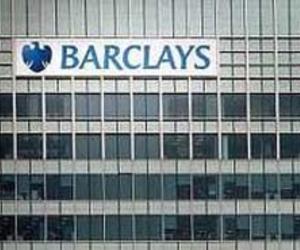Barclays agrees to forfeit $298 million to settle sanction violations charges
- Submitted by: manso
- United States
- Politics and Government
- 08 / 17 / 2010

Monday, August 16, 2010; 10:26 PM. Barclays Bank has agreed to forfeit $298 million to U.S. and New York authorities to settle criminal charges brought Monday by federal prosecutors, who allege that the British bank violated U.S. financial sanctions against Cuba, Iran, Libya, Sudan and Burma for more than a decade by knowingly aiding banks in those countries with $500 million in transactions with U.S. entities from 1995 to 2006.
In a pending plea agreement filed in federal court in the District, the U.S. government alleged that Barclays, through its U.S. dollar-clearing operation at its New York branch, followed directions to omit the names of banks in sanctioned countries when sending payments to the United States, stripped off identifying information, routed payments through an internal account to hide links to those countries and deliberately used less transparent "cover payments."
A spokeswoman for the Justice Department did not immediately comment about the criminal information, which charged the bank with one count of violating the International Emergency Economic Powers Act and one count of trading with the enemy and which was signed by Jennifer Shasky Calvery, chief of the Justice Department's asset forfeiture and money-laundering section.
A London spokeswoman for Barclays said a statement was forthcoming and referred questions to the bank in New York.
Barclays spokesman Michael O'Looney in New York said the bank and the Justice Department were seeking court approval of a deferred prosecution agreement. "Because this matter is pending before the court, at this time we will have no further comment," he added.
At a 1 p.m. hearing, U.S. District Judge Emmet G. Sullivan declined to immediately approve the deal without the presence of Barclays Group general counsel Mark Harding, whose signature was on the proposed agreement.
"If he wants to do this, he can get on a boat or a plane to plead guilty like anyone else," Sullivan said. "He's not going to plead on the phone."
In court papers pending Sullivan's approval, the U.S. government agreed to defer criminal prosecution for 24 months "in light of Barclays' remedial actions to date, its willingness to cooperate with the United States, and its agreement to settle any and all civil and criminal claims held by the United States" for $298 million.
The Treasury Department's Office of Foreign Assets Control oversees bans on U.S. entities from dealing with Cuba that date to the Kennedy administration, with Libya to 1986, Iran to 1995, and Burma (also known as Myanmar) and Sudan to 1997.
Barclays, one of the largest banks in the world with $2 trillion in assets as of Dec. 31, voluntarily disclosed to OFAC four transactions that violated sanctions in May 2006 and cut off dealing with sanctioned banks that November before launching an internal review with U.S. investigators of transactions starting in 2000 and ending July 31, 2007.
Prosecutors said Barclays officials outside the United States caused its New York branch to process payments that otherwise should have been rejected, blocked or held for investigation under OFAC rules and prevented the branch from filing required Bank Secrecy Act and OFAC reports.
The bank's New York officials began warning of potential misuse of payment message information as early as October 2001, telling British headquarters of an example of "how foreign banks circumvent the OFAC regulations" after a Sudanese payment was stopped.
However, Barclays "continued disguising sanctioned payments and routing them through its New York Branch until early- to mid-2006," prosecutors alleged, when senior management learned of the four suspect transactions.
By Spencer S. Hsu
Washington Post Staff Writer
Source: www.washingtonpost.com/
Comments